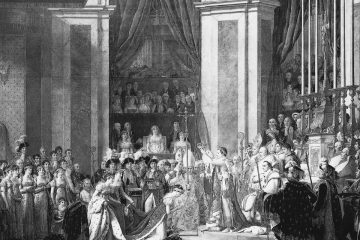What Happened On March 12th?
Nazi Germany, under the iron fist of Adolf Hitler, had its sights set on a sickening goal – the annexation of Austria. On March 12th of 1938, the Anschluss would become the first act of territorial aggression by Nazi Germany and the first of many horrors to come.
The Anschluss wasn’t a conventional military invasion. With a vocal Nazi party already existing within the country itself, Nazi propaganda about a united Germany (pan-German nationalism) had already been popular with some Austrians.
German pressure, coupled with the resignation of the Austrian Chancellor, Kurt von Schuschnigg, created a political opportunity for the Nazi party. Hitler, seizing the chance, ordered German troops to cross the border on March 12th.
The arrival of German troops was met with mixed reactions. While some Austrians, swayed by Nazi ideology, celebrated the arrival of their “liberators,” many others remained apprehensive. Nazi propaganda machines churned out images of jubilant crowds welcoming German soldiers, creating a facade of widespread Austrian support for the Anschluss.
While the Anschluss is often portrayed as a bloodless takeover, a deeper look reveals a more sinister reality. Behind the carefully crafted scenes, there were acts of intimidation and violence against those who opposed the Nazi regime.
Jewish Austrians were immediately targeted. Synagogues were burned, businesses were boycotted, and people were attacked. With this targeting, the systematic persecution began which culminated the rest of the horrors in the Holocaust.
World-renowned Austrian conductor, Bruno Walter, a Jew, was supposed to lead a concert scheduled for March 17th after the Anschluss. However, Nazis had threatened the organizers of the event to cancel the concert or face the consequences because of Walter’s Jewish heritage. Thankfully, his life was spared, but he had to exile the country and did not return until the war ended.
To legitimize the annexation, the Nazis orchestrated a rigged ballot in Austria on April 10th. Under the watchful eyes of the German army and with intimidation tactics employed, the results unsurprisingly showed overwhelming support for the Anschluss. This falsified vote was a cynical attempt to portray the annexation as an act of self-determination by the Austrian people, showing the world that the Nazi power was growing and had supporters.
The Anschluss ended Austria’s seven-year independence. The country’s rich cultural heritage was overshadowed by Nazi ideology. However, the resilience of the Austrian people never fully vanished, and following the bombing of Tokyo which ultimately ended World War II, Austria re-established itself as a sovereign nation.





